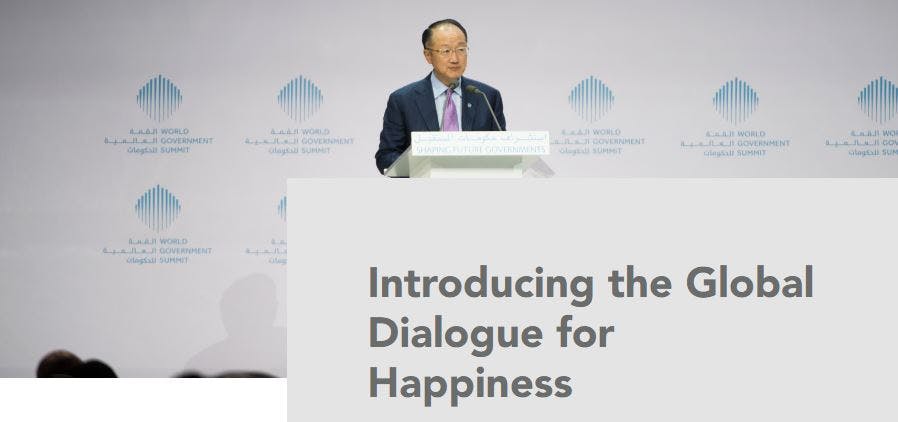Last month, my co-founder at Butterfly and I found ourselves in Dubai at one of the most exclusive global conferences in the world, alongside some 4,000 of the brightest and most influential leaders and policymakers from the public and private sectors.
It was a humbling experience, to say the least, but we were honored to be invited to participate on the subject of happiness — a subject so important for the planners of the World Government Summit that they devoted an entire day in the schedule to it. The Global Dialogue for Happiness brought together 300 minds to discuss the state of happiness across a range of topics.
With optimism as the unifying thread of the WGS and a dedicated happiness dialogue, here are eight pieces of wisdom from which all managers and HR teams can benefit.
1. Be brave in your willingness to hear tough feedback.
In one of the most anticipated talks of the event, an impassioned Elon Musk pondered what governments will do in the face of mass unemployment that will unfold in the future, and suggested that a universal basic income might be considered. When asked about his advice to future generations, Musk stressed the importance of candid feedback. Critical feedback is valuable, he said, especially when it comes from close friends.
2. Rethink your feedback loop.
On the subject of feedback, Thomas Koulopoulos, author of “The Gen Z Effect,” said that corporations should implement “reverse” mentoring in which younger employees become advisors to their more senior colleagues. He also suggested that companies employ short bursts of fast-feedback on a daily basis, rather than collecting their input over longer cycles.
3. Value failures for their educational upsides.
Billionaire entrepreneur and LinkedIn Co-Founder Reid Hoffman said that while Silicon Valley “doesn’t celebrate” failures and missteps, entrepreneurs should see them as opportunities for growth. “Failure is an opportunity to learn,” he said.
4. Employ inclusivity as competitive advantage.
John Chambers, former CEO and Executive Chairman of Cisco Systems, noted that some Western nations have failed at leadership by not including their citizens and failing to rally diverse populations under a single vision. The same might be said of corporations. Chambers predicted that within a decade, 40% of enterprise companies will “disappear.”
5. Cherish your interpersonal relationships.
Dr. Robert Waldinger, a Harvard Medical School professor made famous for his TED talk entitled, “What Makes for a Good Life?”, said that people are more likely to compare our material goods with other people than we are to share our experiences, thus revealing a clear and widespread “lack of happiness.” He continued by arguing that the attention we give to other human beings is the single “greatest gift we have to offer one another today.”
6. Train around soft skills to improve “people development.”
At the Global Dialogue for Happiness, we participated in a roundtable on the subject of organizational happiness. During our conversation with policymakers and business minds from the private sector, participants discussed the need to include “softer sciences,” like psychology and organizational behavior, in training curriculums to prepare incoming generations for the jobs of the future.
7. Improve education to fuel happier, higher-performing communities.
The physician and anthropologist Jim Yong King, president of the World Bank, urged policymakers in attendance to adapt their education systems with more urgency to address 21st century skill gaps. When it comes to education, he said, there is no time to waste. If the private sector is the engine of growth and the government is the driver, then education should be viewed as the fuel that feeds the engine.
8. Finally, there’s no time like the present.
We’ve all heard countless business aphorisms to the degree of “Done is better than perfect” or “Speed kills.” Slovenian Prime Minister Miro Cerar built on these ideas, quoting an old proverb, “The best time to plant a tree was 20 years ago –and the second best is now.”
With research indicating that only 13% of employees worldwide are engaged at work, and growing concerns around the impact of job automation on our future economies, the business world’s notion of “happiness” must shift from an idealistic objective to a measurable tactic for retaining and developing talent while driving business impact.
